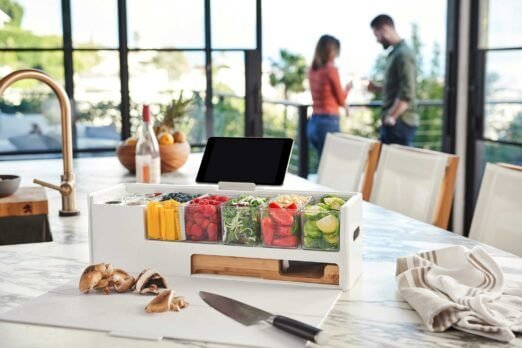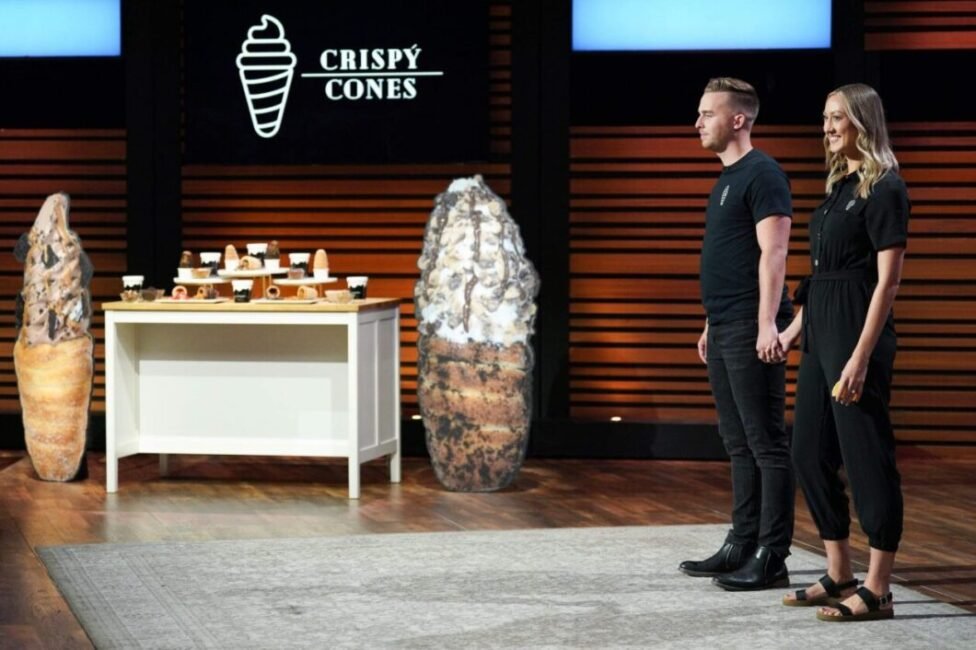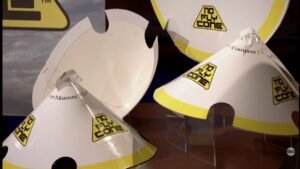Let’s be honest—everyone loves a good Shark Tank story. They got a deal! Their lives changed! If only it worked that simply. Prepdeck’s story cuts closer to real deal-making: no fairy dust, big plays, and walking out with your head high—even if the check never landed. If you’re a side hustler, home cook, or worn-out entrepreneur, you’ll want to see how Alexander Eburne brought his kitchen startup into the Shark Tank (Season 13, for the diehards), what really happened, and what the grind looked like when the cameras stopped rolling.
Contents
ToggleWhat Is Prepdeck?
Let’s bust the first myth: Most as seen on TV gadgets end up in garage sales. Prepdeck is different. It’s a kitchen organizer aimed at people tired of clutter and chaos when prepping meals. This is not an apron or a weird single-use slicer. Eburne pitched Prepdeck as the Swiss Army knife of meal prep—one big box with built-in containers, drawers, and integrated tools. Home cooks can slice, dice, stash, and stay organized instead of juggling ten plastic bowls on a small countertop.
So, why does it matter? Kitchen organization is usually an afterthought. But streamlining the prep is what takes a meal from exhausting to repeatable—and that’s something every home cook wants, even if they’re not yelling about it on social media. Seriously, this product solved a daily pain, not a Shark Tank novelty problem.
The Founder’s Story: Alexander Eburne in the Hot Seat
Alexander Eburne isn’t some wide-eyed rookie hustling his first little gadget. Before Prepdeck, he cut his teeth in ecommerce and product design. He came with receipts—a history of launching products, understanding margins, and selling online. When he rolled into Shark Tank, he knew how much funding he needed: $750,000 for 7.5% equity, pegging his business at a $10 million valuation.
Most founders freeze or get too greedy. Eburne played his hand with confidence—backed up by sales, systems, and a wife who stole half the show. Bringing her on was smart. She showed the Sharks (and millions at home) that this product wasn’t some guy’s tinkering, but a real solution families want.
Shark Tank Pitch: Dollars, Drama, and Demo
Here’s how the actual pitch went down. Eburne started with a painfully messy kitchen scene. His wife struggled to find what she needed and looked about one chopped onion away from a meltdown. But then—Prepdeck to the rescue. Cooled down chaos. Ordered, contained, and basically meal prep magic.
The Sharks perked up. The demo was slick, the numbers sharper. Eburne asked for $750,000 for a 7.5% slice—high, but not outrageous if you know the ecommerce grind.
What set this pitch apart was the process. He walked the Sharks through customer acquisition, direct-to-consumer hustle, and margins that would make a dropshipper jealous. It wasn’t we THINK people want this. He had already shipped over 150,000 units.
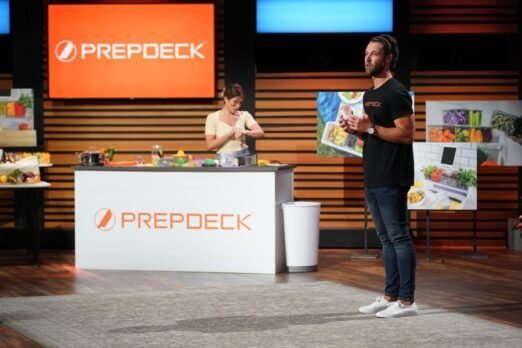
Net Worth and Hard Numbers: Prepdeck by the Figures
Now let’s get real. No pitch matters without numbers. Here’s the cold, hard cash reality:
- Prepdeck hit Kickstarter and blew up—$850,000 raised on an initial $25k goal.
- 2019 sales: $1 million. 2020: $6.2 million with $525,000 profit. 2021 projection: over $10 million.
- Units moved by Shark Tank air date: 150,000+.
- Gross margin: 69%. Product cost to make: $31. Selling price: $99–$119.
- 99% of sales through their website and Amazon. Real DTC muscle.
- It cost 25% of revenue to acquire customers—aggressive, but manageable if you’re scaling fast.
This wasn’t a maybe it’ll work? company. Prepdeck had real traction. That’s why Eburne had the guts (and the math) to swing for a $10 million pre-money valuation. He wanted $750,000 to expand, not just to stay afloat.
Breaking Down the Sharks’ Feedback
Here’s where it gets juicy. Want to see how tough-minded founders react when things get prickly with the Sharks? Watch this segment.
- Barbara Corcoran: Noped out because she hated plastic cutting boards. She likes wood and ceramic, so she couldn’t see past her own taste.
- Daniel Lubetzky: Said it wasn’t his kind of business. Translation—he didn’t know how to scale a kitchen organizer, so he passed fast.
- Mark Cuban: Echoed Daniel. If it’s not a tech with infinite scale play, he’s rarely interested.
- Lori Greiner: Said the valuation felt too high. She believed in the home cook market—just not at that price.
- Kevin O’Leary: Classic Chef Wonderful play. Offered $750,000 as a loan at 9.5% interest plus 5% equity. Eburne shot back with a better counter: 9% interest, interest-only payments, and just 3% equity.
Negotiations stalled. Kevin wouldn’t budge, and Eburne wasn’t hungry enough to give away equity on loan terms that would squeeze his growth. Smart. Sometimes walking out with no deal is exactly the win a real founder’s looking for.
Sales Channel Secrets: How Prepdeck Moves Product
Let’s talk distribution—the stuff few shows ever mention, but real hustlers care about. Prepdeck isn’t in Williams Sonoma or fancy department stores. The move? Dominate DTC and Amazon.
- 99% of sales came through their own site and Amazon’s platform. No middlemen, all margins.
- The website let them build a loyal community and collect data—hugely powerful for product tweaks and retargeting.
- Amazon gave reach and trust. But, it eroded some margin and makes reviews king.
- Customer acquisition wasn’t cheap—25 cents on every dollar of revenue went to finding buyers. But with a $99+ product (and high margins), that’s a price worth paying when you’re scaling with speed.
That’s the real DTC playbook—solve a clear pain, own the website, and use Amazon as rocket fuel, not the whole engine.
Where’s Prepdeck Now? Growth Moves After Shark Tank
Did the Shark Tank hype matter? In this case, it brought a big PR spike—but Prepdeck didn’t need a Shark to survive. The Shark Tank effect is real, especially for DTC brands. Traffic to the site surged, Amazon sales spiked, and social mentions kept the product top-of-mind.
Post-show, Prepdeck doubled down:
- But they mostly went back to what worked: strong site, smart ads, customer support that built fans, not just buyers.
- The investment Eburne wanted would’ve been split: more inventory (to avoid stockouts—always a risk on national TV), product development, and hiring a bigger team to scale content, logistics, and support.
- By March 2025, Prepdeck is still in the kitchen, still moving units, and still popping up in kitchens, Instagram posts, and gift guides.
No magic pill, but no frenzied collapse either. The brand kept swimming after the cameras packed up.
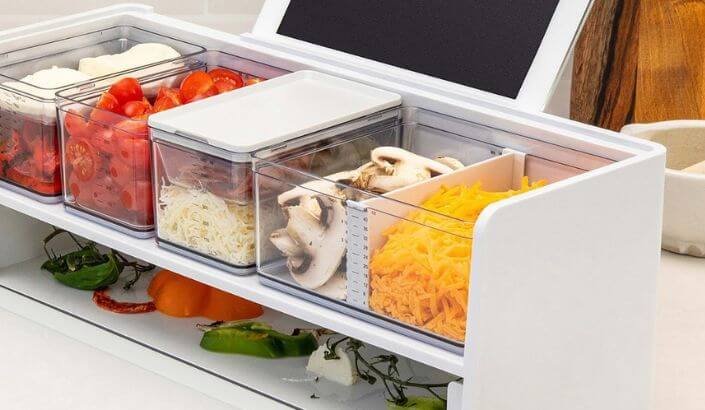
Real Takeaways for Hustlers and Founders
Most founders see Shark Tank as a Hail Mary. Eburne knew it was just one play in a long game. If you’re pitching or hustling a physical product, learn from his moves:
- He showed brutal clarity on costs, margins, and what the money would fuel—not just we need cash.
- Brought in his wife to hammer home the real pain point. That wasn’t a gimmick, it was connection.
- Refused a weak loan plus equity offer—even with cameras rolling. Too many founders fold. Eburne didn’t.
- Used the Shark Tank platform for exposure, not salvation.
Want to know what separates winners from almosts on Shark Tank? Preparation, vision, and knowing your worth long before Kevin O’Leary makes a cheesy Chef Wonderful pitch.
Final Verdict: Prepdeck’s Shark Tank Legacy
Was Prepdeck’s Shark Tank pitch a flop? Far from it. No deal, sure—but that was strategy, not failure. The exposure brought floods of new customers. The hustle didn’t slow for a second.
If you’re in the kitchen startup grind, or any DTC business, here’s the real takeaway: Don’t get starstruck. Sharks are smart, but they’re not the final bosses. Build a product people need, keep your margins strong, and bet on yourself long after the TV drama ends.
Prepdeck didn’t get a Shark. But they kept their house, kept their equity, and are still standing tall. That’s the kind of legacy worth chasing.
If you want deep dives on company valuations, hard lessons, and Shark Tank grit, keep your browser on SharkWorth. We tell you who’s making real money—and who’s just making headlines.
FAQs — Straight Talk for Curious Minds
1. Is Prepdeck still in business after Shark Tank?
Yes. As of March 2025, Prepdeck is shipping products and growing. They sell on their site and Amazon. That’s proof the Shark Tank effect is real if you can back it up.
2. Did any Shark invest in Prepdeck?
No. Kevin O’Leary made a loan-plus-equity offer, but the founder passed. Deal-free, but walking proud.
3. What is Prepdeck’s net worth or valuation after the show?
Eburne asked for a $10 million valuation. Their growth, margin, and unit volume suggest they’ve held steady and possibly grown since the episode. SharkWorth estimates keep them in the 8-figure club.
4. Where can you buy Prepdeck products?
Direct from Prepdeck’s website and on Amazon. That’s 99% of their business—fast shipping, direct to you.
5. How did the Shark Tank appearance impact Prepdeck sales?
Big boost in exposure and traffic. Extended Shark Tank effect kept the store busy for weeks after the episode.
6. What were the biggest criticisms from the Sharks?
Plastic cutting boards (Barbara), uncertainty in the kitchen product space (Daniel, Mark), and a high valuation (Lori). Kevin wanted equity for a loan—a tough pill for any founder.
7. Who is the target user for Prepdeck?
Busy home cooks, meal preppers, anyone who needs real kitchen organization. Not just gadget people—actual daily users.
8. What’s next for Prepdeck’s business?
Continued growth, new product launches, and a relentless focus on DTC and Amazon. No Sharks needed—just sharp, founder-led hustle.
Keep this in mind: Shark Tank can launch a business, but it’s grit, numbers, and knowing your customer that builds it. Prepdeck proves it. Want the real worth, the real playbook, and the next big kitchen win? Bookmark SharkWorth. The grind never stops—even when the Tank is empty.

